Sir David Attenborough is a widely revered figure in the realm of natural history and broadcasting. With a career spanning over six decades, he has captivated audiences around the world with his nature documentaries, fostering a deep appreciation for the wonders of the natural world.
Early on, Attenborough’s fascination with the natural sciences led him to study at the University of Cambridge. After completing his studies, he embarked on a broadcasting career with the BBC in 1952. In the pioneering series “Zoo Quest,” Attenborough not only produced but also appeared on camera, setting the stage for his future endeavors and establishing his engaging and informative style.

In the 1970s, Attenborough made a significant shift in his career, transitioning back to content creation from administrative roles within the BBC. This shift led to the creation of the groundbreaking series “Life on Earth” in 1979, which reached an astonishing 500 million viewers worldwide. Attenborough’s subsequent works, such as “The Blue Planet” and “Planet Earth,” have been acclaimed for their extensive research, stunning cinematography, and his captivating narration.
What truly sets Sir David Attenborough apart is not only his immense knowledge of the natural world but also his ability to connect with audiences. His warm and engaging narration conveys both a sense of wonder and an urgent call for environmental conservation.

Throughout his illustrious career, Attenborough has received numerous accolades, including BAFTAs, Emmys, and the distinguished Order of Merit from Queen Elizabeth II. His unwavering commitment to raising awareness about the beauty and fragility of our planet has not only made him a respected broadcaster but also a global advocate for environmental issues. Even in his 90s, his work continues, leaving a lasting impact on future generations.
Now, at the age of 97, Sir David Attenborough openly admits to grappling with memory loss, particularly when it comes to remembering names during scriptwriting. However, this natural decline in memory does not hinder his career or disrupt his daily life. It is estimated that around 40% of people experience memory loss after the age of 65, but this does not necessarily indicate dementia. Attenborough firmly refuses retirement, declaring that “putting your feet up is all very well, but it’s very boring.”

Despite these memory challenges, Sir David Attenborough continues to inspire through his ongoing series, “Planet Earth III,” where he highlights the importance of coexisting with nature and takes on our responsibility towards it. His resolute dedication to his craft and his enduring passion for the natural world make him a living legend and an inspiration to people of all ages.

I Fell for My Daughter-in-Law’s Grumpy Neighbor, but Thanksgiving Exposed the Awful Truth About Our Relationship – Story of the Day

Living with my son and his unbearable wife was far from the peaceful arrangement I had imagined. But when the grumpy neighbor next door unexpectedly asked me to dinner, everything began to change. Little did I know, a secret plan was unfolding — one that would turn my life upside down.
I had been living with my son Andrew and his ever-resentful wife, Kate, for two weeks. It wasn’t an arrangement either of them had ever wanted, but my accidental, slightly exaggerated leg injury had finally forced Kate’s reluctant consent.

For illustration purposes only. | Source: Midjourney
She opposed it, of course—she had for years—but this time, she had no choice.
Stepping out onto the porch that morning, I spotted her in the yard, raking leaves. Watching her from a distance, I sighed. The poor girl hadn’t the faintest idea what she was doing.
“Kate, you’re doing it all wrong!” I called, raising my voice. She didn’t even look up.
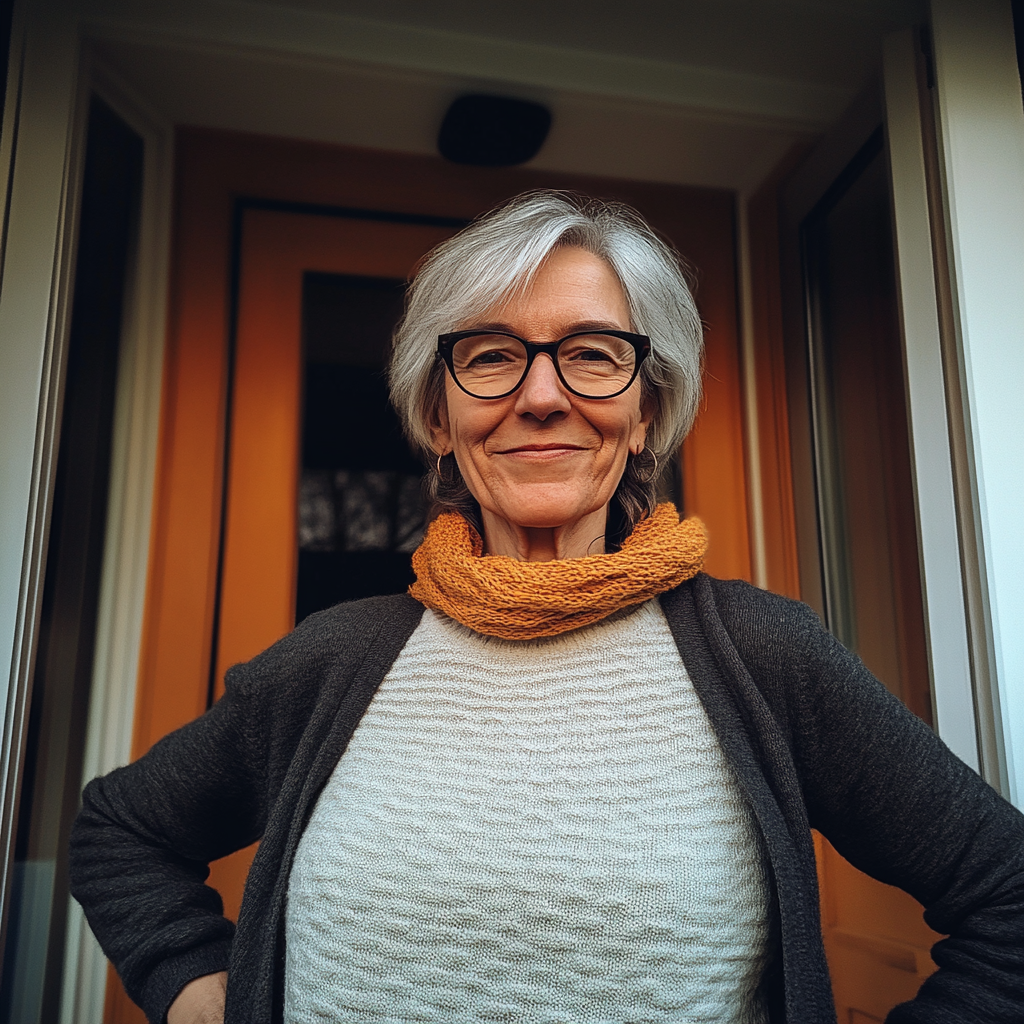
For illustration purposes only. | Source: Midjourney
I assumed she hadn’t heard, so I moved closer, wincing for effect. “I’m telling you, you’re raking them the wrong way. Start with small piles, then combine them into one big heap. Dragging them across the yard is a waste of time.”
She stopped abruptly, leaning on the rake, and turned to face me. Her face betrayed the exhaustion of carrying a child and hosting an unwanted guest.
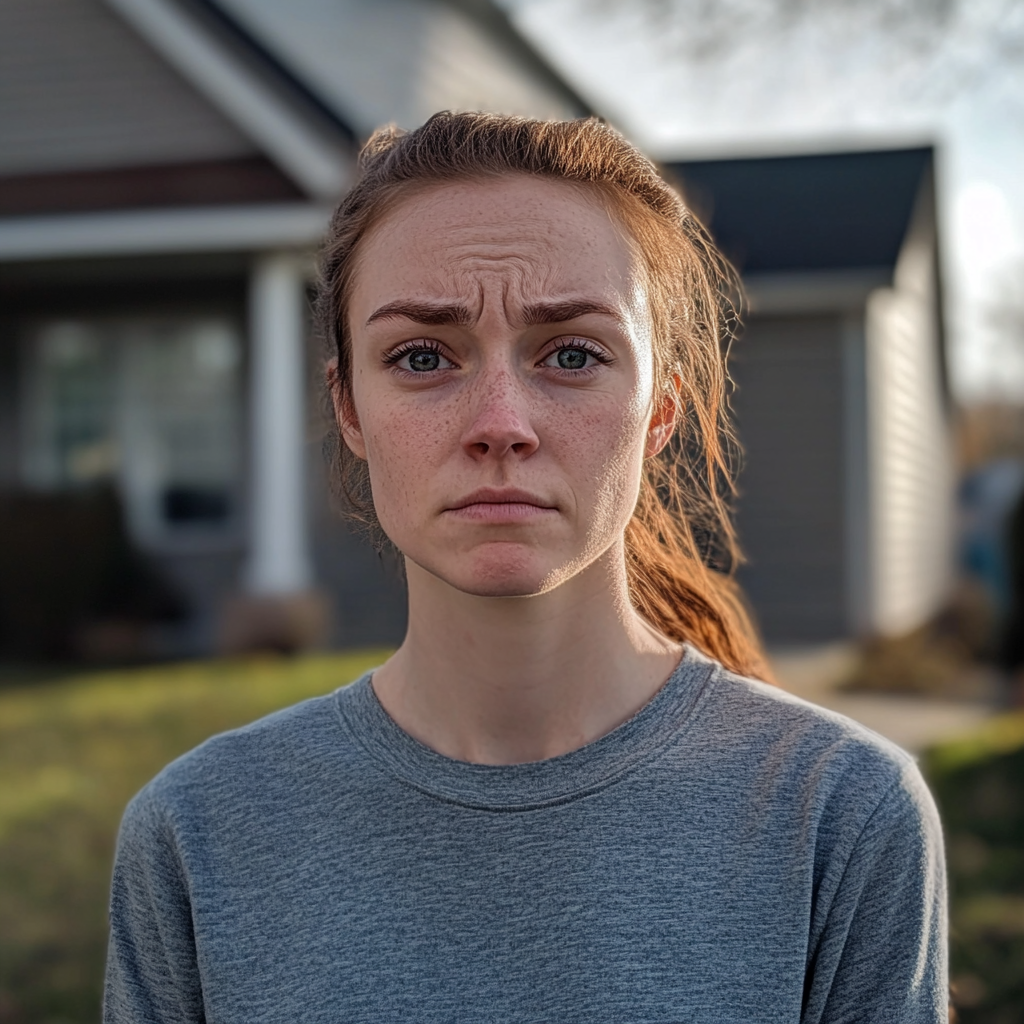
For illustration purposes only. | Source: Midjourney
“I thought your leg hurt,” she said flatly, her gaze drifting to my suspiciously steady walk. “Maybe it’s time for you to go home?”
The nerve of her! Clutching my leg for emphasis, I replied indignantly, “I was trying to help you, despite the pain, and this is how you thank me?”
Kate rested a hand on her belly, the protective gesture unmistakable. “I’m seven months pregnant. Helping would mean actually doing something useful,” she said, her voice sharper than the autumn air.
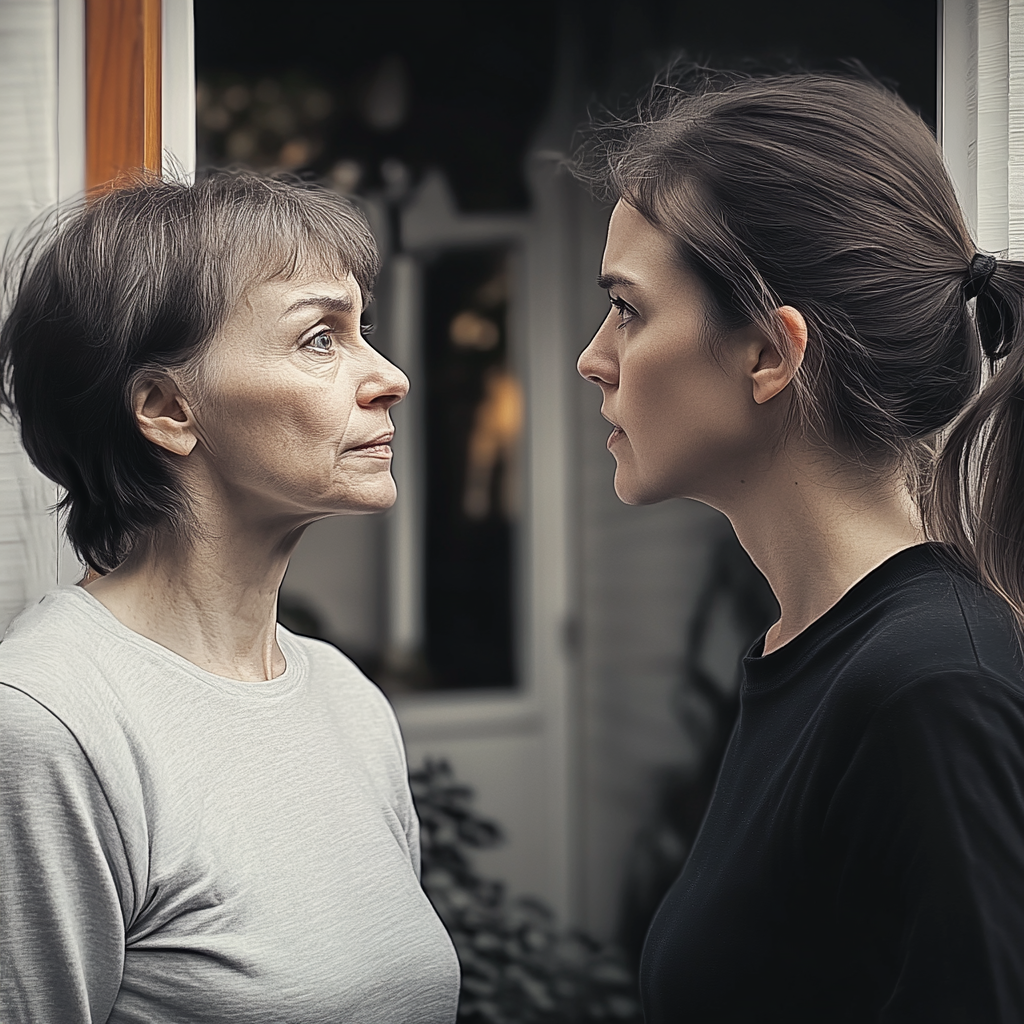
For illustration purposes only. | Source: Midjourney
Rude, I thought, but I forced a tight smile. She wasn’t worth the argument.
Across the fence, Mr. Davis, their grouchy neighbor, shuffled into view, his perpetual scowl in place.
“Good afternoon, Mr. Davis!” I chirped, trying to soften his hard expression. He grumbled something under his breath and disappeared into his house without so much as a nod. Just like Kate—miserable and unsociable.

For illustration purposes only. | Source: Midjourney
Back inside, I noticed dust on the furniture again. Kate was on maternity leave—surely, she could spare time to clean. Andrew deserved a better-kept home after all his hard work.
Later, Kate returned to the house and started preparing dinner. Naturally, I offered her a few helpful tips, but my advice seemed to fall on deaf ears. Eventually, she turned and said coldly, “Please, just leave the kitchen.”

For illustration purposes only. | Source: Midjourney
That evening, as Andrew came through the door, I heard her complaining to him. Leaning close to the wall, I caught snippets of their conversation.
“We discussed this,” Andrew said, his tone measured. “It’ll benefit everyone.”
“I know,” Kate replied with a weary sigh. “I’m already trying, but it’s harder than you think.”
When I peeked around the corner, I saw Andrew embracing her, his arms wrapped protectively around her growing belly. He comforted her as if she were the victim here!

For illustration purposes only. | Source: Midjourney
At dinner, I couldn’t resist pointing out that her pie was undercooked.
“I have an idea,” Kate said suddenly, her tone too cheerful to be genuine. “Why don’t you bake a pie yourself and bring it to Mr. Davis?”
I frowned. “That grump? He doesn’t even greet me,” I scoffed, narrowing my eyes at her.
“I think you’re mistaken. He’s not so bad—just shy,” she said, a knowing smile tugging at her lips. “Besides, I’ve seen the way he looks at you.”

For illustration purposes only. | Source: Midjourney
I laughed, the sound hollow. “If that’s true, he’s the one who should make the first move. A man should court a lady.”
Kate sighed, her gaze shifting to Andrew, who squeezed her hand as if sharing a secret.
The next morning, the last thing I expected was to see Mr. Davis approaching the yard.
“Margaret,” he began stiffly, his posture as awkward as his tone. “Would you… well… have dinner with me?”
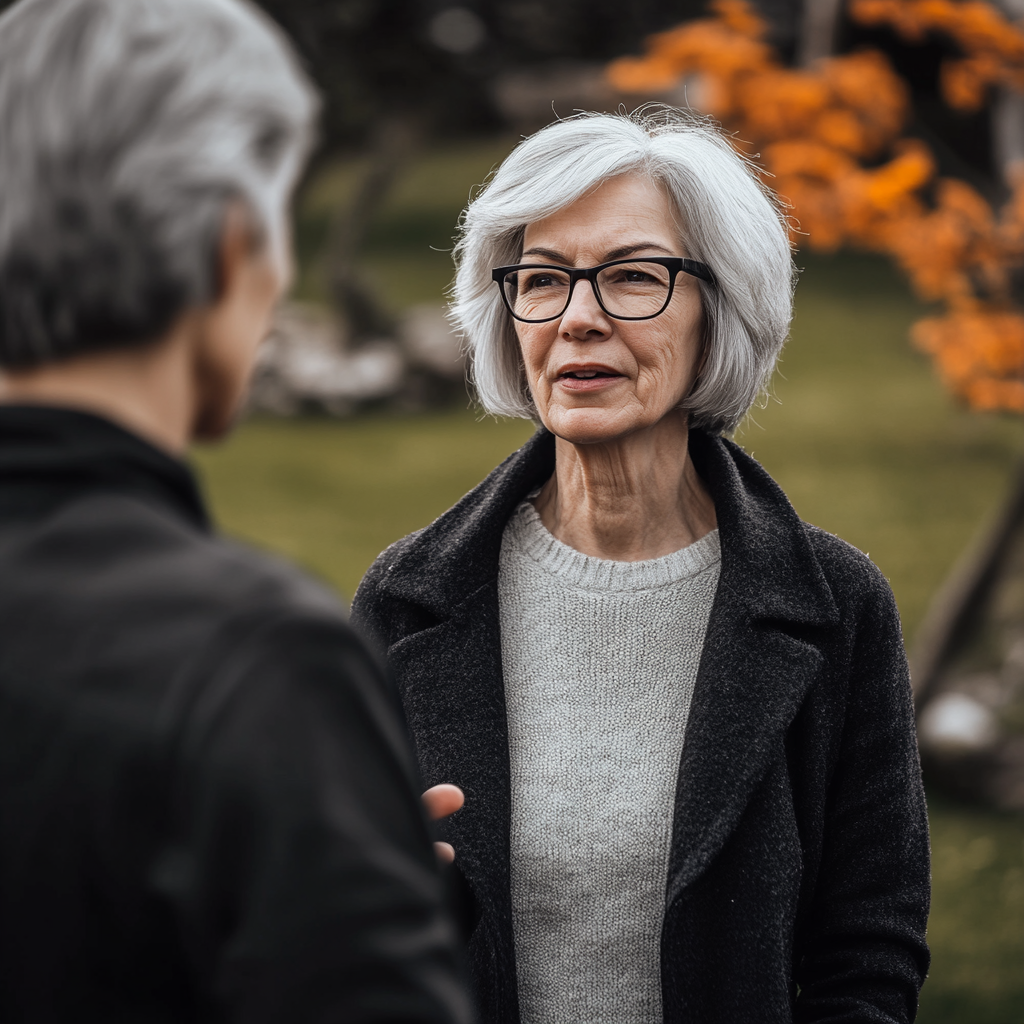
For illustration purposes only. | Source: Midjourney
“For you, it’s Miss Miller,” I replied, raising an eyebrow.
His lips twitched in frustration. “Alright, Miss Miller,” he corrected himself. “Would you allow me to invite you to dinner?”
“I allow it,” I said, crossing my arms. He nodded curtly and turned to leave.
“Is that how you invite someone?” I called after him, watching him freeze mid-step. “When? Where?”
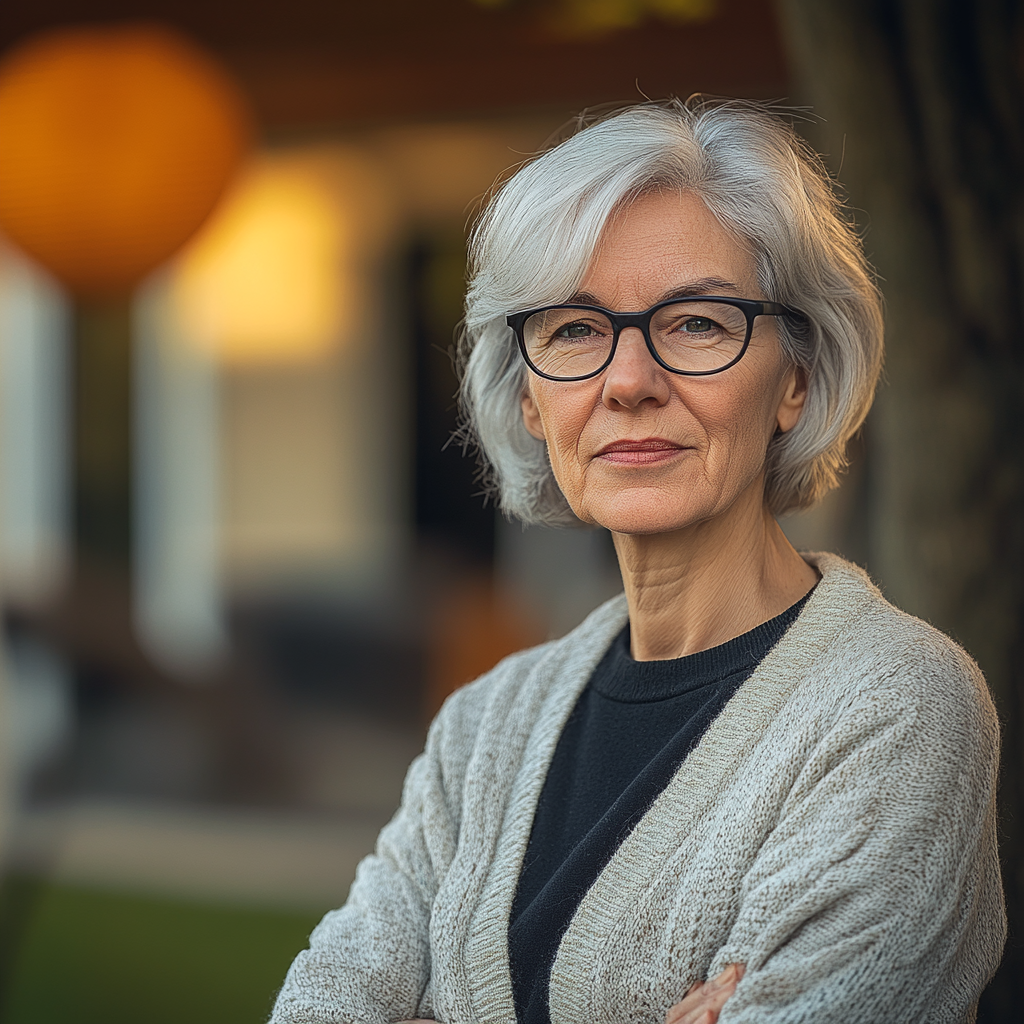
For illustration purposes only. | Source: Midjourney
“Tonight at seven. My house,” he said without turning back.
The rest of the day was a flurry of preparation. By seven sharp, I stood at his door, my heart unexpectedly fluttering. When he opened the door, his expression was as grim as ever.
Inside, he gestured for me to sit at the table. Not even a pulled-out chair—some gentleman.

For illustration purposes only. | Source: Midjourney
During dinner, the conversation was stilted until I mentioned my love for jazz. His face transformed, his usual gloom replaced by a boyish enthusiasm.
“I’d play my favorite record for you,” he said, his voice softer now. “And I’d even invite you to dance, but my record player’s broken.”
“You don’t need music to dance,” I said, surprising myself.
To my astonishment, he rose and extended his hand. As we swayed in the dim light, he hummed a familiar tune, one I hadn’t heard in years. Something inside me softened, and for the first time in ages, I didn’t feel alone.

For illustration purposes only. | Source: Midjourney
Afterward, I turned to him. “Mr. Davis, it’s getting late. I should go home.”
He nodded silently, his usual reserved demeanor returning, and walked me to the door.
Before I stepped outside, he hesitated. “You can call me Peter,” he said, his voice softer than I’d ever heard it.
“And you can call me Margaret,” I replied, smiling.

For illustration purposes only. | Source: Midjourney
Then, to my astonishment, he leaned in. For a moment, I froze, uncertain, but when his lips brushed mine, I realized I didn’t want to pull away.
The kiss was gentle and hesitant, but it stirred something I hadn’t felt in years.
As he pulled back, he searched my face for a reaction. I simply smiled, my heart lighter than it had been in ages.
“Good night, Peter,” I said softly, stepping outside. The cool night air met my flushed cheeks, but the smile stayed on my face all the way home—and long after.

For illustration purposes only. | Source: Midjourney
Peter became an irreplaceable part of my days. We spent hours together, laughing over neighborhood gossip, reading books from his vast collection, and trying our hands at new recipes.
While I cooked, he’d hum my favorite songs, filling the house with warmth.
I found a joy I hadn’t known in years, a quiet contentment that made everything else fade.
Kate’s sharp remarks no longer bothered me; my world revolved around Peter.
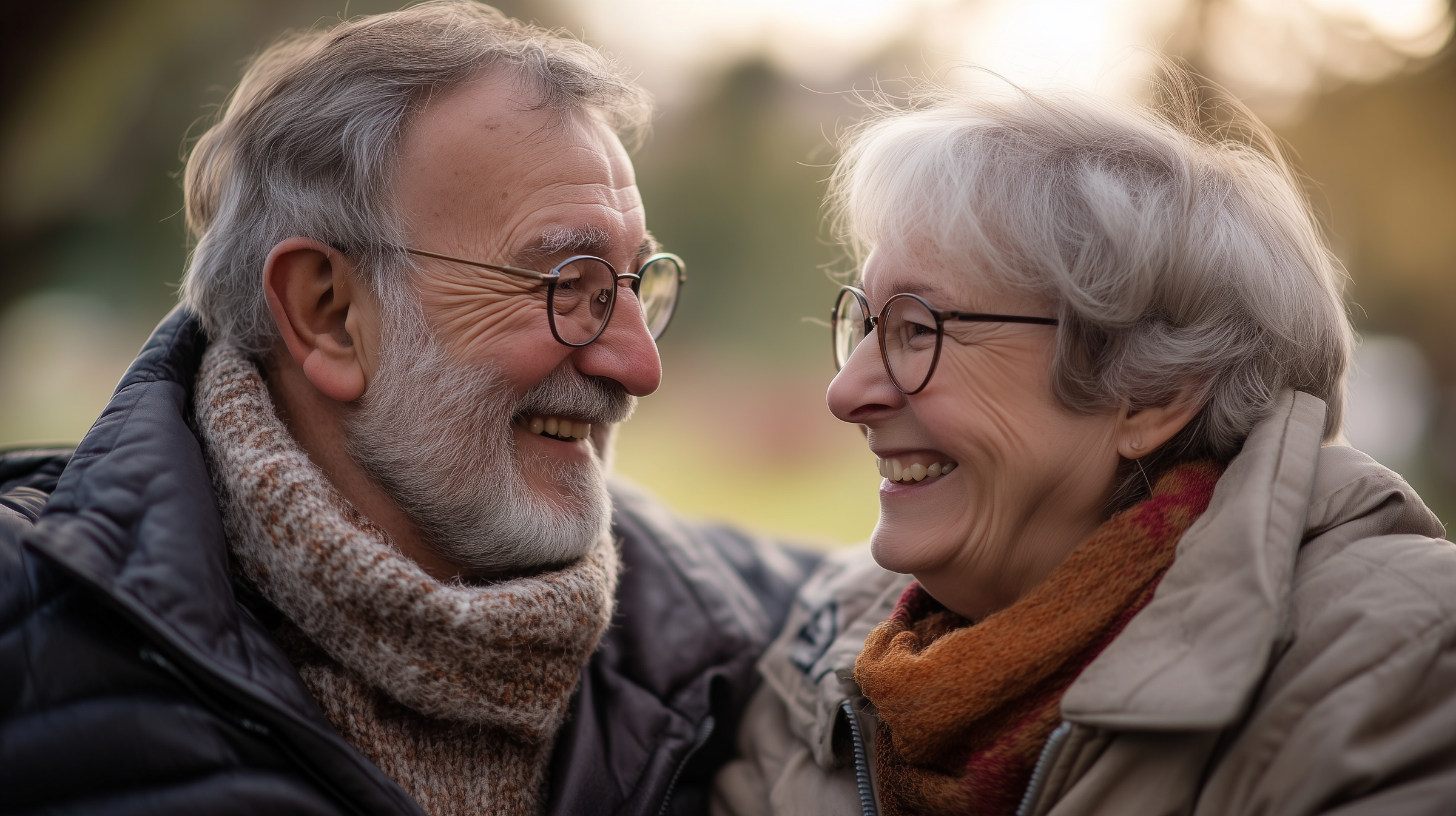
For illustration purposes only. | Source: Midjourney
On Thanksgiving, I invited him to dinner so he wouldn’t spend the day alone. I noticed him slipping into the kitchen to speak with Kate. Curious, I followed.
“Kate, I wanted to talk to you about the record player,” Peter said, his voice hesitant but firm.
“Mr. Davis, I’ve already ordered it. It’ll arrive soon. You have no idea how grateful I am,” Kate replied with a hint of relief. “You’ve made my life so much easier. I don’t know how you put up with her, but soon the record player will be yours. Thank you for agreeing to this whole charade.”

For illustration purposes only. | Source: Midjourney
The words hit me like a slap. A record player? Putting up with me? A charade? The realization burned through me as anger surged.
“So, this was all a game?!” I burst into the kitchen, my voice trembling with fury.
Kate froze, her face pale. “Oh…” was all she managed.
“Care to explain?!” I shouted, my gaze darting between her and Peter.
Andrew rushed in, his brow furrowed in concern. “What’s going on?”

For illustration purposes only. | Source: Midjourney
“Your wife concocted some scheme against me!” I exclaimed, pointing an accusing finger at Kate.
Andrew sighed deeply. It was as if he was bracing himself for a storm. “Mom, it wasn’t just her. It was my idea too. We thought you and Mr. Davis might make each other happy. Neither of you would have made the first move, so we gave him a little… encouragement.”
“Encouragement?” I repeated, my voice rising.

For illustration purposes only. | Source: Midjourney
“We offered him a record player,” Andrew admitted, his tone measured but guilty. “In exchange for going on dates with you.”
“Andrew, why?” Kate whispered.
“At least my son is honest with me!” I snapped, crossing my arms.
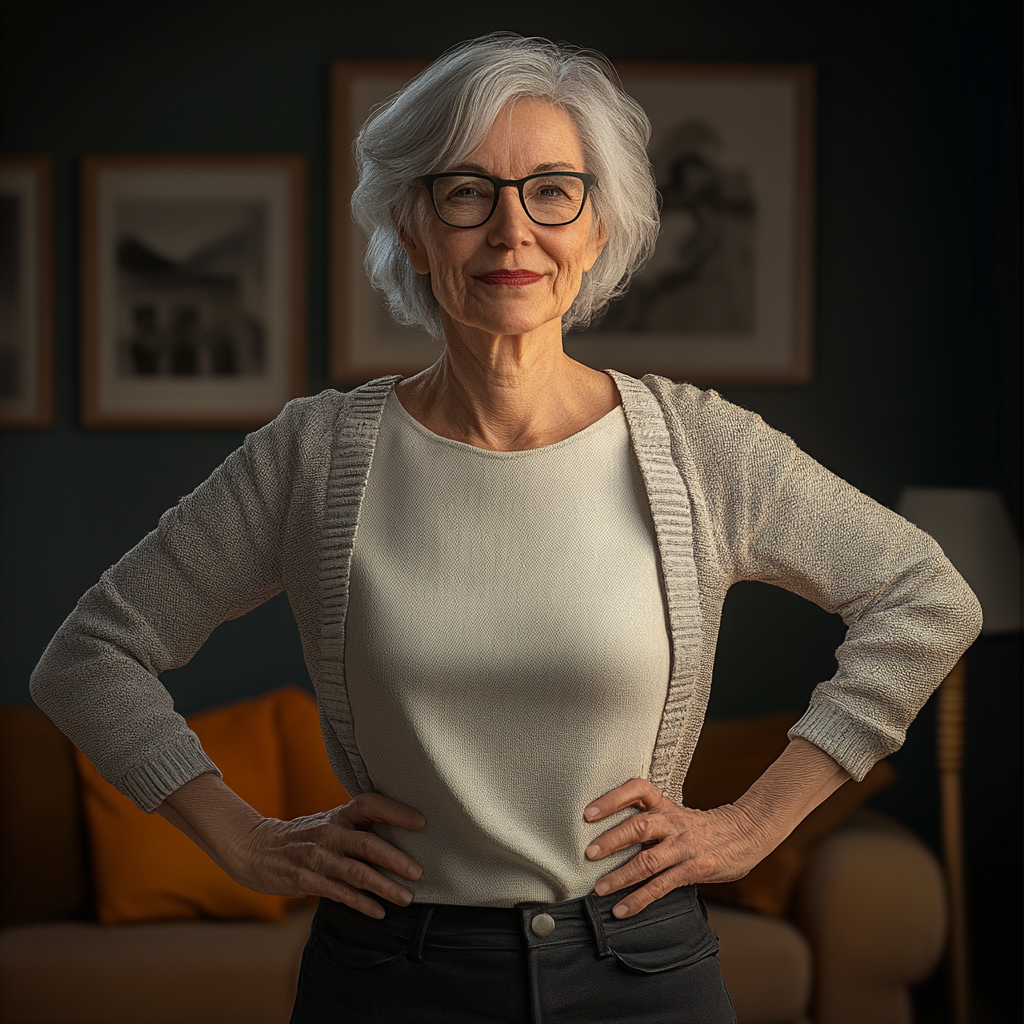
For illustration purposes only. | Source: Midjourney
“Your son was also at his wit’s end with you!” Kate shot back, her voice tinged with frustration. “You were constantly interfering in our lives, nitpicking every little thing I did. And I’m pregnant with your grandchild—I couldn’t handle the stress! So yes, we came up with this plan, and it worked perfectly. You finally had something to do, and I got a break!”
Her words hung in the air, stinging more than I cared to admit. I shook my head, disbelief coursing through me. “You know what, Peter? I could have expected this from her. But not from you.”

For illustration purposes only. | Source: Midjourney
“Margaret, I can explain…” Peter began, stepping toward me.
But I was too angry to listen. I stormed out of the house, my old leg injury reminding me of its presence with every step.
“Margaret!” Peter called after me. “Margaret, wait!”
Spinning around, I glared at him. “What?! What could you possibly say? I’m too old for these games!”

For illustration purposes only. | Source: Midjourney
He stopped, his face clouded with regret. “I told Kate I didn’t need her record player! That I just wanted to be with you!” he shouted, his voice raw with emotion.
“That doesn’t change the fact that you agreed to it at first,” I retorted, my voice trembling.

For illustration purposes only. | Source: Midjourney
“Because you were awful!” Peter snapped, then softened. “Or at least, that’s what I thought. I heard how you constantly picked on Kate, always telling her what to do. But the truth is, I wasn’t any better—grumpy, closed off, and bitter. You changed me, Margaret. You made me feel alive again. You reminded me how to find joy in the little things.”
I hesitated, his words piercing through my anger. “Why should I believe you?” I asked, my voice quieter now.

For illustration purposes only. | Source: Midjourney
Peter stepped closer, his gaze steady. “Because I’ve fallen for you, Margaret. For the meticulous, bossy, always-right woman who also cares so deeply, who cooks meals that feel like home, and who knows all my favorite songs by heart. I love you—all of you.”
Tears welled in my eyes, his confession shaking me to my core. The truth was undeniable—I had fallen for him too. No matter how furious I was, my feelings wouldn’t let me walk away.

For illustration purposes only. | Source: Midjourney
He reached out, gently brushing a tear from my cheek. “I’m sorry for hurting you. Please, give me a second chance.”
I nodded slowly, letting the tension ease. “Alright,” I said, my voice softening. “But you’re keeping that record player from Kate. We’ll need it for our music.” Peter laughed, relief and joy washing over his face.
From that Thanksgiving on, Peter and I were inseparable. Each year, we celebrated the holiday with music playing on that record player, our love growing stronger with every tune.

For illustration purposes only. | Source: Midjourney
Tell us what you think about this story and share it with your friends. It might inspire them and brighten their day.
If you enjoyed this story, read this one: While navigating a difficult divorce, Ellis meets a bold young man at a bar who offers to transform her life. His charm and confidence seem like the perfect distraction, but their connection soon leads to unexpected revelations that force Ellis to confront her past — and her family — in ways she never anticipated.
This piece is inspired by stories from the everyday lives of our readers and written by a professional writer. Any resemblance to actual names or locations is purely coincidental. All images are for illustration purposes only. Share your story with us; maybe it will change someone’s life.


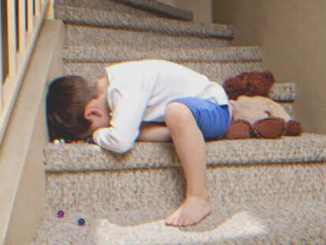
Leave a Reply